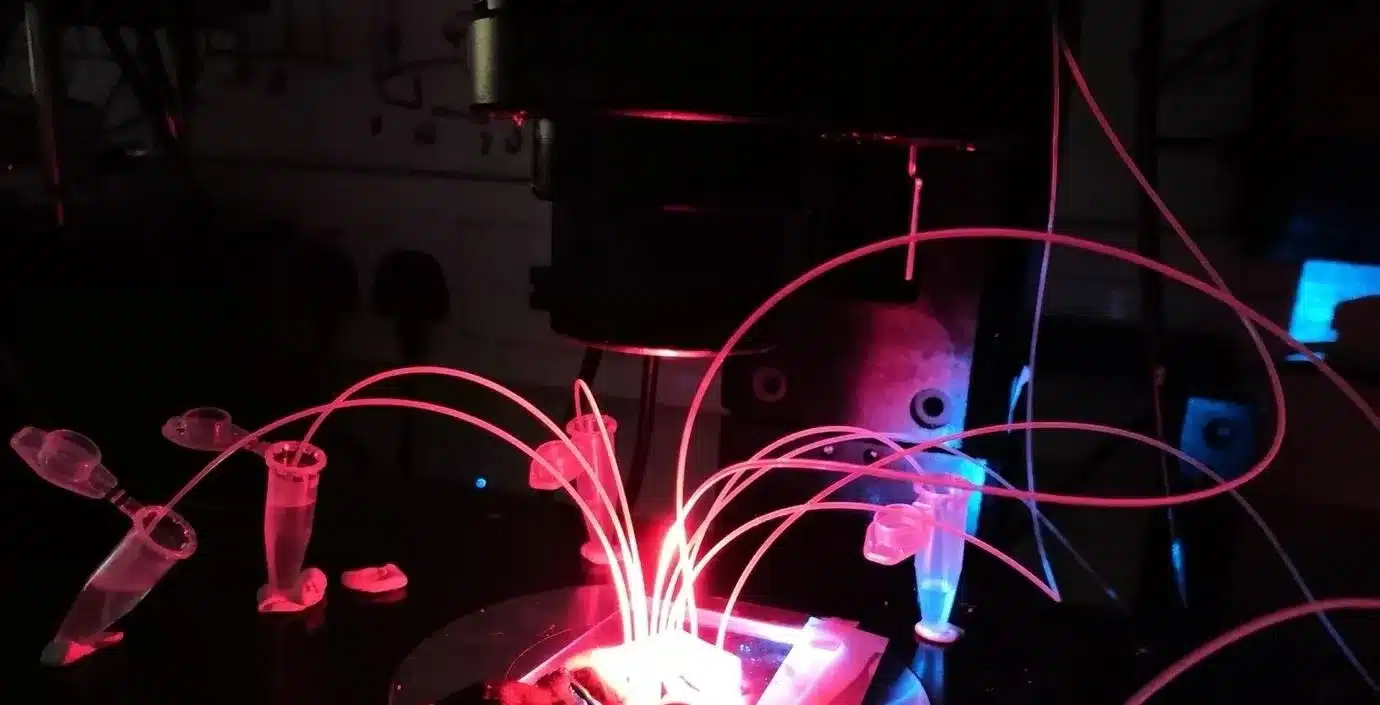Evoralis is developing innovative enzymes that can break down even the toughest mixed and blended fibers, paving the way for a truly circular economy in textiles.
Evoralis, a pioneering company specializing in the discovery and development of plastic-depolymerizing enzymes, has raised £2.5M in a Seed funding round. This investment marks a significant milestone in Evoralis’ mission to transform the recycling landscape for textiles and other plastics. The round was led by LIFTT S.p.A with co-investment from Cambridge Enterprise Ventures and Parkwalk Advisors, Backbone Ventures, circular economy-focused investors Circular Plastics Accelerator and Archipelago Ventures, as well as angel investors. CPI has successfully converted their convertible loan into equity, acquiring shares in the company.
Evoralis, a spin-out from the University of Cambridge Hollfelder Lab, harnesses a unique ultrahigh-throughput screening platform based on microfluidics to discover and refine enzymes capable of breaking down complex plastics into their constituent building blocks. This platform, which accelerates enzyme screening by up to 1,000 times compared to traditional methods, is a game-changer in the pursuit of an economically viable circular economy for textiles and plastics.
The Demand and the Solution
The textile industry is at a critical juncture, with global fiber production nearly doubling over the past two decades to 109 million tonnes in 2023 much of which is not, and cannot be, recycled. The challenge of recycling mixed and blended fibers is immediate and pressing; Europe alone generates approximately 6 million tonnes of post-consumer textile waste annually, with 60% of clothing sold today containing fossil-based plastic which cannot easily be recovered using existing methods of recycling.
Evoralis is addressing this challenge with its groundbreaking enzymatic technology, which will offer a viable solution for recycling over 80% of textiles, including those composed of mixed and blended fibers containing plastic. Evoralis’ revolutionary approach will enable the separation of different materials within textiles, and has the potential to unlock a USD 560 billion economic opportunity.
The company’s platform has already attracted attention from major fashion retailers, who have engaged Evoralis to develop enzymes specifically for recycling nylon and polyurethane – two of the most difficult synthetic polymers to recycle.
Daniel Kaute, CEO of Evoralis said: “We are thrilled to have the support of LIFTT and our other investors as we take this crucial step forward in transforming textile recycling. This funding will enable us to further develop our enzyme technology, making it possible to recycle textiles and plastics that were previously deemed unrecyclable. Our vision is to create a world where waste is a resource, and this investment brings us closer to making that vision a reality.”
Edoardo Bianchi from LIFTT said: “Leading this investment round reflects our confidence in Evoralis’ groundbreaking technology and its potential to revolutionize textile recycling. At LIFTT, we are committed to supporting innovative solutions that address critical environmental challenges, and Evoralis’ approach to enzymatic recycling is a game-changer for the circular economy.”
Philippe Bernet, partner at Backbone Ventures, remarked, “While we typically focus on the DACH region, we made an exception for this UK-based company due to the exceptional strength and track record of the team, which was highly recommended to us by our trusted Venture Partner Jürgen Eck. He will be joining the Board of Directors as independent director and Chair of Evoralis. The groundbreaking technology they’ve developed within the Cambridge University, along with the commercial interest they’ve already generated, truly impressed us.”
Claire Shrewsbury, Director of Insights and Innovations at WRAP, “The use of enzymes in chemical recycling is a huge moment in the history of textile-to-textile recycling. It will transform the opportunities for difficult to recycle fractions such as mixed fibre blends. Clothing and textiles leave a huge mark on the environment and it’s imperative we recover these valuable resources. In the UK alone, around 1,453,000 tonnes of post-consumer textiles were produced in 2022. Over half (759,000 tonnes) was sent to landfill or incineration at end of life – lost forever. The importance of investing in new technologies to recapture and recycle this valuable material into recycled content to displace the use of virgin materials in the textiles industry cannot be emphasised strongly enough.”
Fatima Kranc, Investment Manager at Cambridge Enterprise Ventures, said “We are delighted to be part of Evoralis’ seed round investment. This aligns with our ongoing commitment to supporting University of Cambridge founders in bringing innovative solutions to market. Evoralis’ work with enzymes for bio-recycling textiles is an exciting development and adding them to our sustainability portfolio is an important leap forward. As an Investment Director on the Board, I look forward to the journey ahead with the Evoralis team.”



